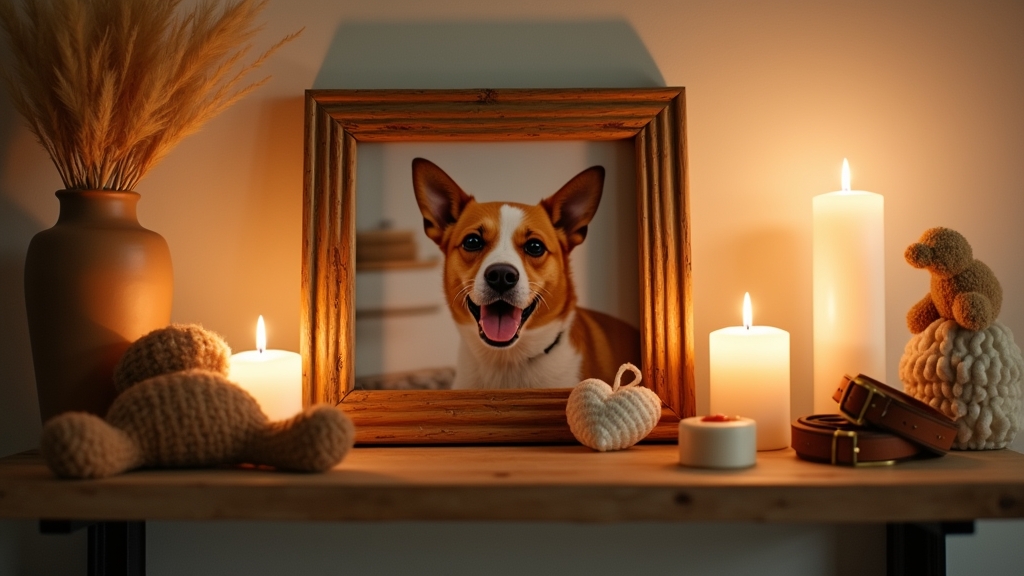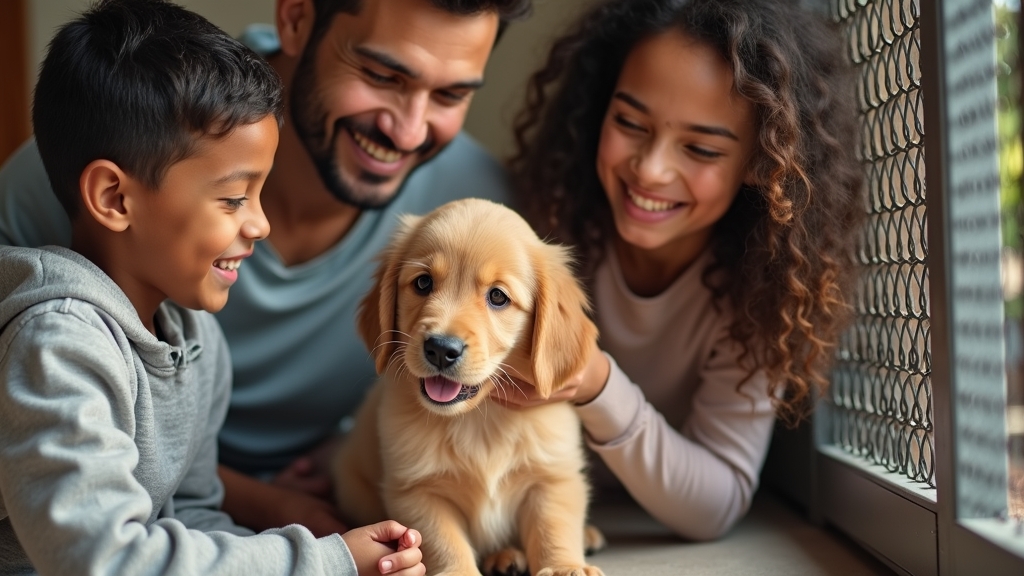Losing a beloved pet is devastating. In cases where the cat or dog is terminally ill, you are somewhat prepared for their death and can take the time to process it while ensuring your furry friend is comfortable. But sudden deaths are even tougher to cope with.
If you’ve lost your best friend recently and are struggling to get through day-to-day life, know that this is completely natural. Overcoming the loss of a pet can take some time. For some people, the grieving process might be a few days. For others, it can take up to a few years.
There is no right or wrong way, and while you will always think of the departed, you need to learn to deal with pet loss efficiently and find peace.
Recovery is a gradual process. However, with the right support, you can better manage your grief and look back on the happy memories you shared fondly as you start healing.
Here are some of the best ways to heal from the emotional pain after the loss of a pet.
1. Journaling

Journaling is a great way to get a hold of your thoughts and change your perspective of your cat or dog’s death.
The experience of losing a pet puts your mind all over the place. It’s hard to focus on anything – you feel guilty; you feel angry, wondering if you could have gone to the vet sooner and caught onto the state of their physical health before it was too late. These overwhelming emotions impact the way you live.
Your thoughts about your pet and different instances related to the relationship you had with the animal will surround you during the first few months. You’ll feel lost, and jotting down your thoughts and feelings will help you process your emotions and enjoy life again.
Keeping a journal gives you time to think and translate your feelings into words – you are consciously giving structure to your thoughts. It allows you to take a moment to stop crying and actually understand your grief rather than giving your triggers power.
Some people prefer to write down their thoughts in the morning to start the day in a calm state, whereas others opt for a moment before bed to clear their minds. You can also consider keeping your journal on you all day long to write down whatever comes to mind and compartmentalize your thoughts.
Another approach is to write letters to the pets, express your feelings, and continue to relish in that unconditional love.
When you note down your thoughts, you have a chance to reflect on them later on. When you review your journal entries after a few days or a week, you’ll spot your patterns and come to terms with the loss.
2. Learn Healthy Coping Mechanisms

Grief is a difficult emotion to deal with. Everyone has their own way of dealing with it and their own time. Invariably, no matter the circumstances, you shouldn’t be putting yourself in a situation that compromises your physical and mental health.
Luckily, there is plenty of literature and online sources that you can study to better understand how to deal with grief, negative thoughts, and the feeling of loneliness.
By studying this information, you will understand your situation and establish a guide you can follow to pull yourself out of it. More importantly, you will learn that this difficult personal experience is a normal part of saying goodbye to a beloved cat or dog.
All humans feel terrible when they are separated from someone they love. It’s completely natural to grieve the pain and even develop a defense mechanism to temporarily cope; you shouldn’t pressure yourself to return to normal life.
We all process pain and life struggles at different speeds.
3. Join A Support Group For Pet Owners

Talking it out can be one of the best ways to overcome your loss. You can turn to family and friends in your time and need. But you can always seek help and extra guidance from professionals or others in the same situation.
The loss of a pet can become easier to deal with when conversing with other pet owners who are living or have lived the same experience – they understand the way a human loved their pets like family, and can even bring you peace of mind.
Joining a support group where you can express yourself and seek comfort from pet owners will help guide you on the path to recovery. This can be a great time to lean on family members and connect as you comfort each other.
Talking about how you feel – whether it’s guilty, lost, sad, or depressed – will prove that you are not alone. This is a normal stage of grief, and you too will eventually move past it with some healthy strategies.
Hearing about how other pet owners feel and cope, and what the experience is like for them, also helps you find comfort as you heal together.
A quick online search will show you several local support groups that you can sign up for to get started with the healing process.
4. Honor Pets With A Ceremonial Goodbye

Whether your pet passed due to old age, a terminal illness, or other reasons, you can never truly prepare for their death. But you can continue to honor the joy these pets provide their families with a ceremonial goodbye.
Holding a proper funeral to finalize the departure of the pet allows you to give them a loving send-off and even gives you some control over the situation.
This event is a great way to channel your negative thoughts into healthier ones. While the ceremony is there to grieve your beloved pets, it’s also a chance for you to focus on the wonderful moments you shared, which will help you move forward with positive memories.
There are specialized funeral celebrants that you can get in touch with to organize the farewell ceremony for your pet. It’s a very stressful time and organizing such an event is very challenging in this devastating state.
Having a professional take care of event management makes it less stressful for the pet owner.
5.Host A Memorial For Your Beloved Pet

There are several websites where you can create a ‘virtual’ memorial for your pet. You can upload pictures, videos, and text – and other people can also participate by writing a message or liking your posts.
For families that are far apart, this is a great solution, as you can all access the memorial from anywhere as long as you have an internet connection.
Another strategy is to go for cremation. You will get the pet’s ashes and store or place them in an area of your home. You can also consider a green cremation if you don’t like the idea of burning the body. Green cremations use no flames at all, yet you still get the same result.
Taxidermy can also be done if you want to have a full-sized version of your pet to keep with you. You can then dedicate a space in your home to a shrine for your pet.
Having a memorial in any form can be very helpful in overcoming the loss. The animal continues to exist in your heart, but this way it can still be a part of your life. Many people find it comforting to have something tangible that they can remember their playmate by.
If you have space on your property where you can bury the pet, this is a popular option for most families with small children. You can make a small tombstone to go with it and you all can write cards and place flowers on your pet’s birthday even after they have passed.
6. Maintain A Routine

It’s only natural to take a few days to feel sad, feel grief, be by yourself, and rid yourself of obligations so you can grieve when a pet dies. But you still need to adopt a daily routine. You can’t survive with no routine at all in the long term.
Give yourself a mourning period that allows you to bounce back, not dwell on the pain.
Going to bed and waking up at the same time, eating on time, exercising, and doing all your daily chores will help you get back to normal.
These small daily tasks help you stay grounded in the present moment and protect your mind from spinning into an uncontrollable downward spiral of thoughts.
If anything, you should be paying more attention to your routine to keep feeling like yourself.
While the thought of the separation might still be at the back of your mind, the fact that you focus on your purpose will give you the positive momentum you need to move forward.
7. Seek Guidance During The Grieving Process

If you want one-on-one assistance, then therapy is the best option. You can talk to a counselor or a psychologist about the pet loss, and they will give you the tools to focus on all the joys the pet brought to your life.
Sometimes bouncing your thoughts off other people isn’t enough because you are unable to reach a conclusion and aren’t sure what you should be doing next.
When you seek professional help, just a few sessions can help you make a dramatic improvement. In extreme cases, the therapist may even be able to give you medication that will help you overcome the mental and physical difficulties you face with the loss of a pet.
It is not uncommon for people to have trouble sleeping, nausea, anxiety, and stress after losing a pet. With some medication and exercise, you can reduce your anxiety.
Therapy is especially useful for pet parents that have already been facing mental or personal challenges such as addictions.
The death of a pet will only have them resort to their negative behavior patterns so getting timely assistance can save them from other problems down the line.
8. Add A New Pet To Your Family

If your cat or dog died, there’s no doubt that there’s a huge void to fill in your heart and your home. One way to bring joy back into your life is to add a new pet.
While this pet will never replace the previous animal, it does offer emotional support and allows you to add even more members to your family.
You can go down to an animal shelter and improve the life of another pet to honor the one you lost. Adopting a service animal will not only do your own mental and physical health some good, but you are helping the animal as well.
Things that you usually did with your lost pet are no longer a part of your routine, and that also plays a big part in the recovery process.
For many pet owners, playing with their dogs, going out for walks, or even just going to the vet for a regular check-up, are things that give them purpose, and make them happy living a fulfilled life. If the pet died, with it died that lifestyle.
Caring for a new family member is a lot of rewarding work and enough of a distraction to keep your mind away from negative thoughts.
It allows you to focus on positive energy during the grieving process and adopt a more optimistic outlook for the future as you start to develop a bond with the new dog.
As you get busy with day-to-day activities, it becomes much easier to manage the loss of an old pet. The joy of a new dog or pup can actually help you honor the deceased, and it’s especially helpful for kids who miss their pal.
Conclusion
It’s completely normal to feel anger, sadness, and guilt after losing a pet. You feel helpless that you couldn’t do more for your pet. But the truth is, you gave your lost pet the best life you could, and now it’s their time to rest in peace.
With this guide, you can focus on all the great things you did for your furry friend and enjoy the memories.
Now is the time to stop crying and focus on yourself. Your pet wouldn’t want you to be in a tough mental state. You’ve done all you can and deserve to relieve yourself of grief. You could join a gym, make new friends, expand your social circle, learn new things, or find hobbies that interest you.
Lastly, keep in mind that death is a natural part of life. Sooner or later, we all have to face it. It’s nothing to be ashamed of. What matters is you live while you’re here – and that is exactly what your beloved pet did!
